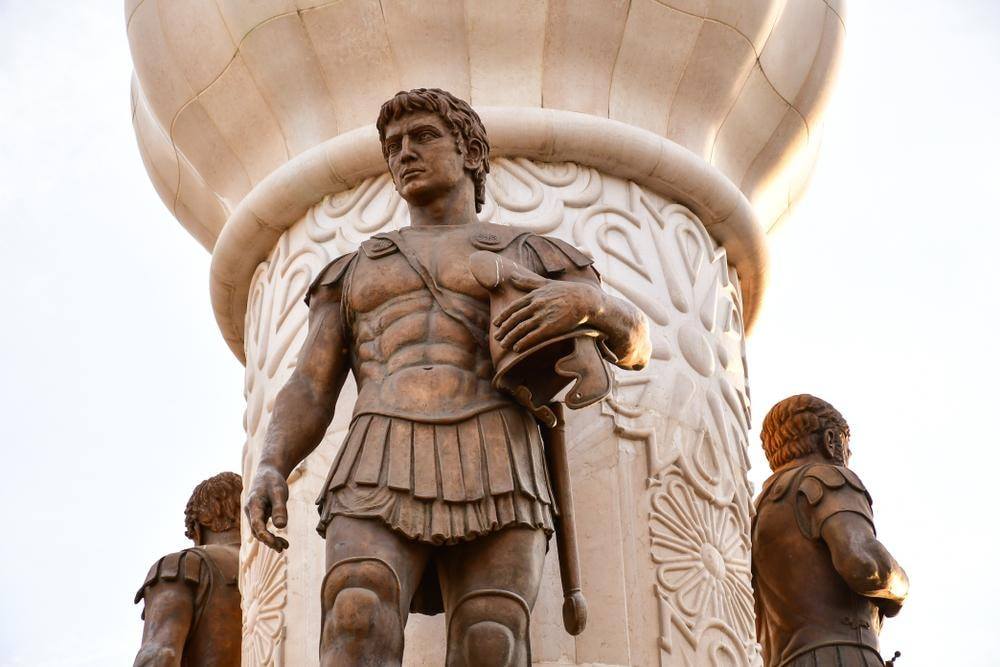On this day 323 B.C:
Alexander the Great, the 33 year old Macedonian military genius who forged one of the largest contiguous empires in history stretching from the Mediterranean to India, died in Babylon (modern day Iraq).
He was born in Pella, Macedonia to the royal family of King Phillip II and Queen Olympias where he was tutored in military education by his father while renowned philosopher Aristotle taught him philosophy, medicine, art and religion.
As a teenager, Prince Alexander led his father’s troops into combat and won the Battle of Chaeronea that brought Greece under Macedonian rule. He would take up the throne in 336 B.C at the age of 20 after his father was assassinated.
He then began his life of conquests and ambitious quest to reach the end of the world leading a fleet of over 120 ships to conquer Persia. He also conquered Egypt, The Levant and Syria. Often outnumbered in his battles he displayed tactical military prowess and never lost a battle.
By this time he already had the largest empire in the history of the world. He then launched a new eastern campaign and by 327 B.C., he had conquered Afghanistan, Central Asia, and large parts of India.
The following year, his exhausted army refused to go farther and Alexander led them on a difficult journey home through the treacherous Makran Desert.
Finally reaching Babylon, he began constructing a large fleet to take his army back to Egypt.
However, in June 323 B.C., just as his ships were nearing completion he suddenly took ill and died leaving no heir as his son was born after his death. His body was returned to Alexandria, where it was buried in a golden coffin. Till date he remains one history’s most successful commanders.











